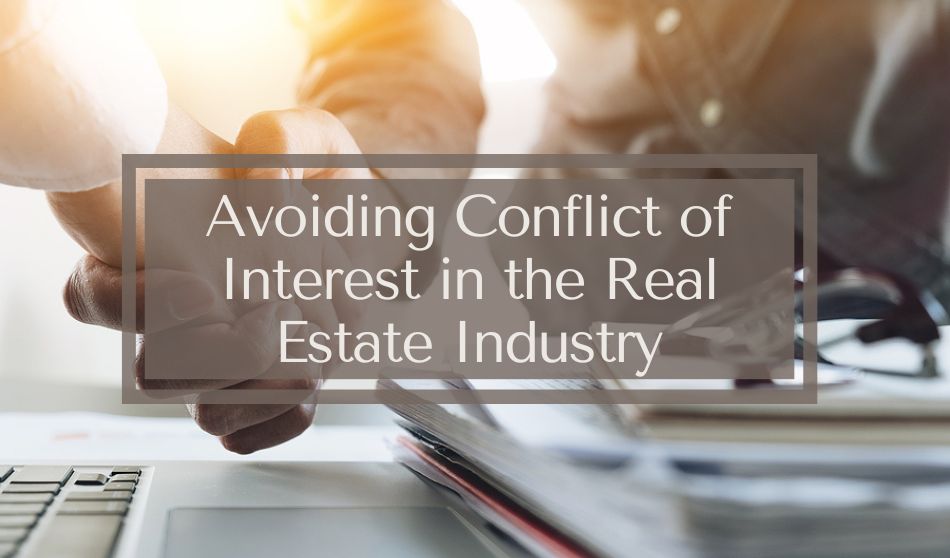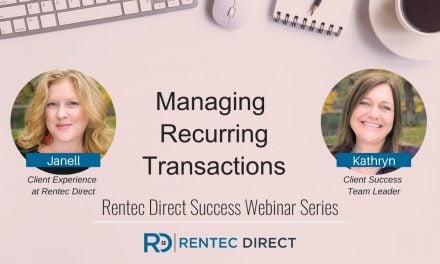
Are you one of the many in the real estate industry passionate about helping people, have an entrepreneurial spirit, and seek out opportunities that present themselves to you? You’re not alone – but how do you know when you’ve crossed a line regarding a conflict of interest?
This article is for anyone curious about conflict of interest and the fine line between ethical connections, opportunities, and potentially illegal acts. Knowing the difference, you can protect yourself, your reputation, and your career.
What first comes to mind for the topic of a conflict of interest are those egregious news stories of insider trading and corruption. Any upstanding real estate professional knows not to get involved with those shady deals. But a shady or underhanded business deal isn’t the only thing that can get you into unethical and illegal hot water. Even an innocent act outside the scope of your professional responsibilities could be considered a conflict of interest with severe consequences – It pays to educate yourself (and your staff) about this serious topic.
Avoiding a conflict of interest
The three critical elements required to stay above board in your real estate endeavors and avoid a conflict of interest are:
Appropriately aligned priorities
Investors, property managers, property management companies, real estate agents and brokers, and the like can inadvertently find themselves in a conflict of interest when they forget their primary objective and put their personal interests above the interest of their clients.
Transparency
In some business dealings, it’s not the secondary relationship or benefit that is inherently a problem or even illegal, but rather when the conflict of interest is not disclosed properly and to the appropriate parties.
Ethical reactions
Knowing when to recuse yourself, decline an offer, or refuse a gift or payment is essential in protecting your ethical standing and reputation.
Helpful resources:
Code of ethics and standards of professionalism for the national association of residential property managersCode of Ethics and Standards of Practice of the National Association of REALTORS®
Situations that can pose a conflict of interest
Different scenarios arise in the real estate industry based on your role and niche. Here are a few situations to pay attention to:
Self-dealing
It is considered self-dealing if you stand to gain a direct profit or benefit from a business dealing, outcome, or decision. In some states self-dealing is acceptable with explicit written and signed approval by all parties. However, even if acceptable, agents, brokers, and managers have an obligation, as fiduciaries, to show loyalty to their clients above any self-interests.
Sometimes, disclosure is the bare minimum in that you may also need to recuse yourself from a situation like a real estate broker on a co-op board where an upcoming vote may give them an unfair advantage.
Agent/Investors are in a unique situation, and you can follow a discussion on BiggerPockets about avoiding a conflict of interest here: Buying & Selling Real Estate Discussion Forum
Dual agency
A dual-agency situation is when someone represents both parties in a negotiation. In real estate sales, it is difficult for an agent to fairly serve both the buyer’s and seller’s needs. The same holds true in commercial real estate when brokering a lease agreement.
Risk is involved in negotiating for both parties in a real estate transaction. Even though some states consider dual agency legal, there is the perception of a conflict of interest and a temptation to work the deal to the best advantage of the party paying the agent or broker fee.
Tip: If you are a commercial tenant or are looking to purchase a home, it’s a good idea to find representation (tenant broker and seller agent) so you can come to the negotiations armed with support for your best interests.
Incentives, bonuses, gifts, and referral fees
Is there any harm in accepting a gift from a vendor? The answer isn’t cut and dry.
Token gifts received during the holiday season from vendors could be appropriate. However, be very cautious if they are showering gifts on you to gain favor and contract renewal.
Check with your state and local real estate board to find out what fees are acceptable to receive and if there are any limits on the dollar amount. For example, in Oregon, a licensed property manager may not accept a referral fee related to a property sale but can set the amount, charge, and accept commissions for lease signing activities.
You will also want to check with your secretary of state and the IRS to learn about the acceptable types of gifts, bonuses, and payments and the tax reporting based on the valuation.
Hiring friends and family
Hiring and contracting with family (nepotism) and friends can be a double-edged sword. On the one hand, your aunt’s painting company might be the best option for interior painting during tenant turnover. On the other hand, it could have severe consequences if you haven’t disclosed the relationship to the property owner.
If it is not illegal in your state to hire a friend or family member (be sure to verify before you do), double-check that you are abiding by your state regulations on disclosures of that information.
Favoritism
Hiring or contracting with family and friends can also be seen as favoritism so be sure to vet their skills and credentials and treat them as you would any other employee or contractor.
Human nature has us gravitate to different individuals more than others but it’s important to separate our natural proclivity from our ethical obligation to be impartial. Avoiding a conflict of interest resulting from favoritism would include presenting the same opportunities to everyone.
For example, according to Dayton Daily News, an executive rented a house to an employee. He was her landlord and directly responsible for approving her annual raise and ‘restructured leadership roles at the agency to put her in her current position”. The executive failed to disclose the relationship on annual conflict of interest forms and showed favoritism.
Other Considerations
Are employees required to disclose conflicts of interest? All employees must abide by the same ethical standards and regulations of your agency, brokerage, or property management company. If they do not, even in ignorance, the licensee will be held responsible if they act outside of the governing statutes.
Be sure to update your employee handbook with all rules, regulations, and requirements for disclosing any potential conflict of interest as an employee and as a representative of your business.
Conflicts of Interest Key Takeaways
Educate yourself – be the expert on acceptable practices outlined in your state and local statutes and regulations and the rules of ethics for your niche in the real estate industry. Check with your legal and financial advisors for contract negotiations and tax advice on gifts and payments.
Be transparent with your clients and submit a disclosure and/or conflict of interest statement when appropriate.
Remember your primary obligation to those you serve when temptation arises be firm in your ethical reactions by declining an offer, refusing a gift, or recusing yourself when necessary.
Consequences for deliberate and inadvertent conflicts of interest could include a stain on your reputation, losing your license, and even criminal and civil charges and fines. Make sure everyone within your employ or in partnership knows what is expected regarding this important ethical topic.





